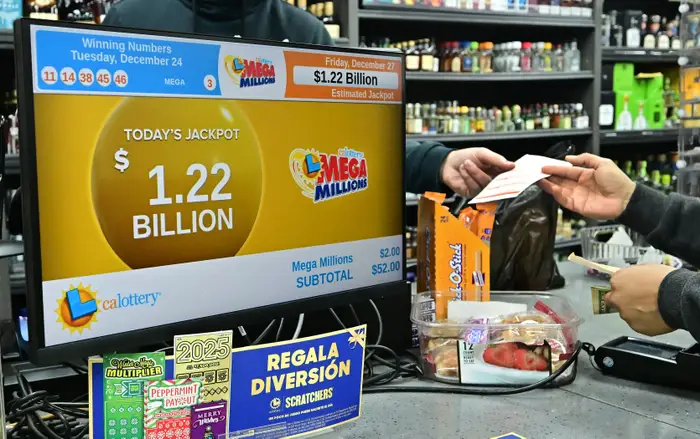
IRS to Issue $1,400 Payments to 1 Million Taxpayers: Are You Eligible?
Introduction
In a significant announcement, the Internal Revenue Service (IRS) revealed plans to send $1,400 payments to approximately 1 million taxpayers. This move aims to rectify missed Recovery Rebate Credits tied to the third round of stimulus payments issued during the COVID-19 pandemic. Many individuals either overlooked this credit on their 2021 tax returns or misunderstood its eligibility criteria, leaving billions of dollars unclaimed.
As the IRS takes proactive steps to distribute these funds, taxpayers are encouraged to understand their eligibility and ensure they do not miss out on this opportunity. Let’s break down the details of these payments, who qualifies, and what this means for taxpayers.
(Facebook: Like, X: Follow, Telegram: Join us)
What Is the Recovery Rebate Credit?

The Recovery Rebate Credit was introduced under the American Rescue Plan Act of 2021. It allowed taxpayers who missed out on one or more rounds of Economic Impact Payments (commonly called stimulus payments) to claim their eligible amount when filing their 2021 tax returns.
- Purpose of the Credit: To ensure all eligible individuals receive their due payments, even if they missed automatic distributions due to filing delays, changes in income, or other issues.
- Maximum Payment: The third round of stimulus payments provided up to $1,400 per individual, including dependents.
Why Is the IRS Sending $1,400 Payments Now?

During routine audits, the IRS identified about 1 million taxpayers who were eligible for the Recovery Rebate Credit but did not claim it on their 2021 tax returns.
- Missed Claims: Many taxpayers either left the Recovery Rebate Credit field blank or entered $0 on their returns, inadvertently forfeiting their payments.
- Automatic Rectification: To address this, the IRS will issue payments automatically without requiring taxpayers to amend their 2021 returns.
- Total Amount: The IRS expects to distribute approximately $2.4 billion through these payments.
IRS Commissioner Danny Werfel emphasized the importance of ensuring taxpayers receive their full entitlements, stating:
“We’re committed to making sure every eligible taxpayer gets the financial relief they deserve, especially during challenging times.”
Eligibility for the $1,400 Payments

Who Qualifies?
The eligibility criteria for these payments align with the requirements for the original third-round stimulus payments:
- Filed a 2021 Tax Return: Taxpayers who submitted their 2021 return but did not claim the Recovery Rebate Credit.
- Income Thresholds:
- Individuals earning up to $75,000 annually qualify for the full payment.
- Married couples filing jointly can earn up to $150,000 annually.
- Payments phase out for higher-income earners, with no eligibility beyond $80,000 (individuals) or $160,000 (married couples).
- U.S. Residency: Must have a valid Social Security Number and meet residency requirements.
- Dependents: Taxpayers who claimed dependents on their 2021 returns are eligible for additional $1,400 payments per dependent.
Who Does Not Qualify?
- Individuals with incomes exceeding the phase-out limits.
- Those who already received their full stimulus payments in 2021.
- Non-filers or those who failed to submit a 2021 tax return.
How Payments Will Be Distributed

Automatic Processing
The IRS will use data from taxpayers’ 2021 filings to determine eligibility and distribute payments.
- Direct Deposit: Payments will be sent to the bank account listed on the taxpayer’s return.
- Paper Checks: For taxpayers without direct deposit information on file, checks will be mailed to their registered address.
Notification Letters
Eligible individuals will receive an official IRS letter confirming their payment amount and delivery method. Taxpayers are encouraged to keep this letter for their records.
Timeline for Payments
The IRS has confirmed that these payments will begin in December 2024, with most expected to be issued by late January 2025.
Important Deadlines
For taxpayers who haven’t filed their 2021 returns, there’s still time to claim the Recovery Rebate Credit. The final deadline to file and claim the credit is April 15, 2025.
What Should You Do If You Haven’t Filed a 2021 Tax Return?

Non-filers or those with minimal income may still qualify for the Recovery Rebate Credit. To claim your payment:
- File a 2021 Tax Return: Use IRS Free File or consult a tax professional to ensure accuracy.
- Check Your Eligibility: Ensure you meet the income and residency requirements.
- Claim the Credit: Include the Recovery Rebate Credit on your return to receive your payment.
The IRS encourages non-filers to take action before the upcoming tax deadline to secure their benefits.
Common Questions About the $1,400 Payments
Why didn’t I receive my payment earlier?
If you did not file a 2021 tax return or left the Recovery Rebate Credit field blank, the IRS could not process your payment.
Do I need to do anything to receive this payment?
No action is required if you are eligible based on your 2021 return. The IRS will process payments automatically.
Can I check my payment status?
Yes, you can use the IRS’s “Get My Payment” tool or contact their helpline for assistance.
What if I’ve moved or changed bank accounts?
Update your information with the IRS to ensure your payment is sent to the correct address or account.
Will this payment affect my 2024 taxes?
No, the Recovery Rebate Credit is not taxable and does not affect your taxable income for 2024.
What happens if I don’t receive my payment by January 2025?
Contact the IRS directly to resolve any issues with your eligibility or payment delivery.
Broader Implications of the Payments
1. Economic Relief for Families
The $1,400 payments will provide significant financial assistance to individuals and families, especially those still recovering from pandemic-related challenges.
2. Importance of Filing Taxes
This initiative underscores the value of timely and accurate tax filings. Even non-filers with minimal income can benefit from credits and rebates if they submit returns.
3. IRS’s Proactive Approach
By automatically issuing these payments, the IRS demonstrates its commitment to ensuring taxpayers receive their due benefits without unnecessary hurdles.
Conclusion
The upcoming $1,400 payments from the IRS are a welcome surprise for nearly 1 million taxpayers who inadvertently missed claiming their Recovery Rebate Credit. These payments not only rectify past oversights but also serve as a reminder of the importance of understanding and utilizing tax benefits.
If you believe you’re eligible, check your 2021 tax filing, ensure your information is up to date with the IRS, and take the necessary steps to secure your payment. With billions of dollars set to be distributed, this initiative offers critical financial relief and reflects the IRS’s ongoing efforts to support taxpayers.
Do Follow For More News : DailyForesight



